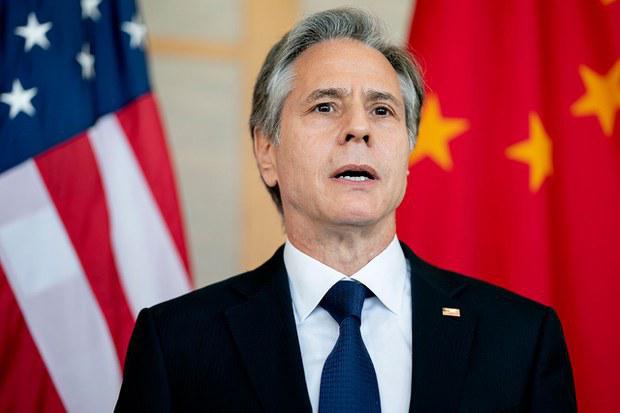Author: Prof. Engr. Zamir Ahmed Awan, Founding Chair GSRRA, Sinologist, Diplomat, Editor, Analyst, Consultant, Advisor, and Non-Resident Fellow of CCG. (E-mail: awanzamir@yahoo.com).
Secretary of State Antony Blinken recently completed his second visit to China in a year, carrying with him a crucial message: it's time to match words with actions. The three-day visit resulted in incremental steps towards stabilizing US-China relations, with agreements on continuing stabilization efforts and enhancing cooperation in various fields like artificial intelligence, Asia-Pacific affairs, maritime affairs, and counter narcotics. Both sides also pledged to expand cultural exchanges.
However, to truly make progress, Washington needs to move away from superficial gestures towards China and address underlying issues. Despite some stabilization after the San Francisco summit, tensions persist due to US policies perceived as hostile, such as military aid to Taiwan and containment strategies under the guise of competition and national security concerns.
It's evident that such tactics only escalate tensions and harm both countries' interests. History shows that economic coercion rarely achieves intended results and often backfires. Furthermore, the recent trend of Sinophobic rhetoric in US politics only worsens bilateral relations.
China welcomes a confident, open, and prosperous United States, but Washington's fear of China's growth has led to increasingly antagonistic policies. This stems from a reluctance to acknowledge the shifting global landscape, where the Global South, including China, plays a significant role.
To move forward, both countries must adhere to principles of mutual respect, peaceful coexistence, and win-win cooperation. Competition is natural, but it should be conducted within established rules without undermining each other's development and rights.
During Blinken's visit, discussions covered key priorities and global issues, emphasizing continued progress on commitments made at the Woodside Summit. There were also talks on enhancing people-to-people ties and addressing concerns like non-market economic policies, human rights violations, and regional security.
China reiterated its consistent stance on mutual respect and win-win cooperation, urging the US to respect China's core interests and avoid interference in its internal affairs. China emphasized the importance of dialogue, managing disagreements, and promoting mutually beneficial cooperation.
On issues like Taiwan, economic policies, and the South China Sea, China stressed its sovereignty and urged the US to adhere to the one-China principle and avoid provocative actions. Both sides reaffirmed the importance of open communication and agreed to continued high-level interactions.
Looking ahead, China aims to establish a correct perception of the relationship, strengthen dialogue, manage disagreements effectively, promote cooperation, and fulfill responsibilities as major countries. It urges the US to respect security concerns, avoid military tensions, and address human rights issues at home before criticizing others.
It appears that the US has potentially sidestepped addressing crucial issues regarding Taiwan, Gaza, and Ukraine, leading some to question the true significance of the recent visit. Given the context of an upcoming election year in the US, there's speculation that this visit might be more about political optics rather than substantive diplomatic progress. With pressures mounting on President Biden regarding his performance over the past four years, there's a concern that this visit might be aimed at garnering sympathy from American voters.
However, with only a few months left until the elections, the window for implementing any agreements reached during this visit is narrow. Furthermore, the uncertainty surrounding President Biden's chances of reelection adds to the complexity of the situation. It's worth noting that his tenure as President has been marked by heightened anti-China sentiments, leading to strained relations between the two countries, arguably the worst in the last four decades.
In reality, China has reached a level of development where coercion or pressure may not be effective. A more constructive approach would be to acknowledge China's rise and explore avenues for cooperation, which could prove beneficial for both sides and the global community at large. Attempts to counter or contain China may prove futile and could potentially harm not only both nations but also the entire world.
In conclusion, while stability in US-China relations is positive, more substantive actions are needed to achieve true progress. Both countries must work together with mutual respect and cooperation to navigate challenges and build a constructive relationship.
(ASIA PACIFIC DAILY)

